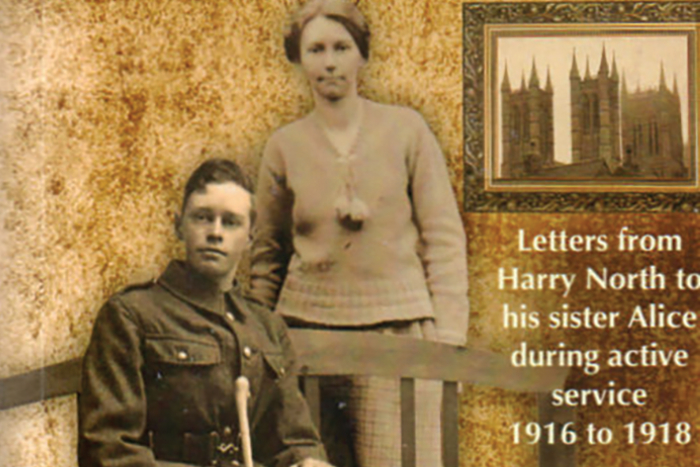
Book review of From Harry to Alice
From Harry To Alice
Review by Rob White
Hello Lincoln and its sister publication, the Lincoln Independent, featured a remarkable new book, From Harry to Alice, based on over 90 letters from brother to sister during the first World War.
The article set whetted my appetite to read the book and explore its interesting Lincoln-based socially historic context.
The book is a stark reminder of the impact of war on the lives of ordinary (in this case Lincoln) people. Harry North, the young recruit serving on the front line in France and Belgium in The Great War, and his poignant communications with his sister Alice back in Lincoln.
The authors, Alison and Alan Johnson (Alan is Harry North’s great nephew) have presented the reader with a wonderful, sometimes amusing and sometimes sad, account of Harry’s journey through two years of his life on active service, all based directly on his letters and postcards sent back to his sister Alice.
After the briefest of introductions providing helpful perspective around the family over several generations in Lincoln (summarised in the earlier article see Culture section), they waste no time at all in presenting the evidence, some 90 beautifully digitised and painstakingly transcribed letters and postcards.
Each digital image, whether letter, envelope and/or postcard, show all the signs of their aged status. Creases, wrinkles, water damage, metallic staining from lengthy storage in tins and even areas which may have provided sustenance for a variety of insect feeders, give a vivid impression of the original archival material.
The (mainly black and white) postcards provide evocative images of conflict-impacted localities in and around “the front”, each containing no more than a sentence of reassurance about location, wellbeing and forthcoming letters.
The letters, however, create a more powerful sense of what Harry endured, and range in content from early enthusiasm to the later much more subdued and broken spirited.
Each transcription is presented verbatim with no attempt to editorialise, other than the author’s footnotes representing their research of the accuracy of issues alluded to in the letters, a fascinating historical confirmation of Harry’s own descriptions.
The language is of the time and almost evokes British Pathe News in its simplicity and self-effacing tone, as attested by the examples below.
I have heard that you have got to eat brown bread in England now surely that is not right is it?
I received both parcels alright thank you, they wasn’t broken at all, and weren’t they champion?
I am glad the zepps are giving you a bit of a rest they are a nuisance when they fetch you out of bed.
You ought to see me in my steel helmet I do look a nut, they are a bit heavy but they are useful.
This jocular tone however gives way to a far more subdued content as Harry’s experiences develop and he nears the completion of his active service, as many of the later letters suggest with Harry desperate to be back in familiar territory in Lincoln.
Alison and Alan Johnson’s efforts in producing this book have left us with what is now a widely accessible, engaging and important archive, not only testament to Harry North, but also to the direct contribution of a Lincoln lad in a never to be forgotten part of history.
The Johnsons have also arranged for part Harry’s history to be highlighted in Lincoln as he is buried in Newport Cemetery where his grave and gravestone have been refurbished for those who may want to pay their respects to the former Lincoln soldier.


